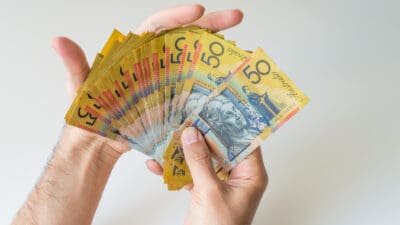Share investors are worried. They are worried that things have been too good.
That's the sad life of a shareholder. When good times arrive, you fear that they can't last. When bad times arrive, you wonder how much further damage could come.
After a boom year since the March 2020 coronavirus crash, many experts are worried equities are now overvalued.
However, Sydney's Ophir Funds, in its latest investment strategy note, still has unwavering faith in the power of shares.
"That's because, compared with other asset classes, equities are still offering investors the most compelling investment case in our opinion. And the most compelling chance to build long-term wealth."
History is on shares' side
Although past performance is never an indicator of future performance, over a very long period, shares outperform all other investments.
Ophir compared different investments over 121 years in the US.
"Equities performed best, returning 9.7% per year versus 5.0% on bonds, 3.7% on cash, and inflation of 2.9% per year," it told investors.
"Furthermore, this study captures some notable setbacks: two world wars, the great depression, an OPEC oil shock, the GFC and COVID-19. In each case, equities eventually recovered and reached new highs."
Fixed income and cash LOSE money
Near-zero or negative cash rates set by central banks around the globe have devastated fixed income and cash as investments.
"Although inflation is soft and likely to be contained, it still sits at a level above both short and long-term interest rates. Because of this, rates in Australia are negative in real terms," Ophir's memo read.
"This means that investment dollars sitting in these cash and fixed income asset classes are generally losing value after inflation."
The investment firm advised that those aiming for long-term wealth creation should stay away from government bonds, and cash levels should be kept to "the bare minimum".
Shares are still relatively cheap
While the stock market's valuation may be higher now compared to other times in history, it's still cheaper than bonds.
Ophir quantified this by calculating the price-to-earnings (P/E) ratio equivalent for bonds.
"The Australian equity market's current PE of around 20x is often pointed out as expensive and a sign of poor future returns," the memo read.
"But this 20x multiple – which implies a yield of 5% — looks cheap compared against the 55x multiple investors are effectively paying when buying Australia's government bonds that currently yield just 1.8%."
What should our expectations be for shares?
With such low returns from other asset classes, shares don't have to do much to look appealing.
So what performance expectations should we have for our stock portfolio?
"In our opinion, when you combine earnings growth, dividends, and the boost from franking credits, a 10% annual return from the Australian share market overall should be achievable over the long term," Ophir told investors.
"We acknowledge though that over the next few years it might be lower than this."
The investment house also stated overseas shares "probably will not outpace" ASX shares after franking credits are taken into account.
"Global stocks do, however, become competitive on risk-adjusted measures once market diversification and currency impacts are considered."
The fact that markets are at or near all-time highs in itself shouldn't deter investors.
"Even after record highs, subsequent 12-month returns from equities have generally been strong," stated the memo.
"Furthermore, while buying into the market slowly in dribs and drabs (dollar-cost averaging), can help mitigate investors' fears of bad market timing, history suggests that investing all at once into the share market generates higher returns than dollar-cost averaging on average."









